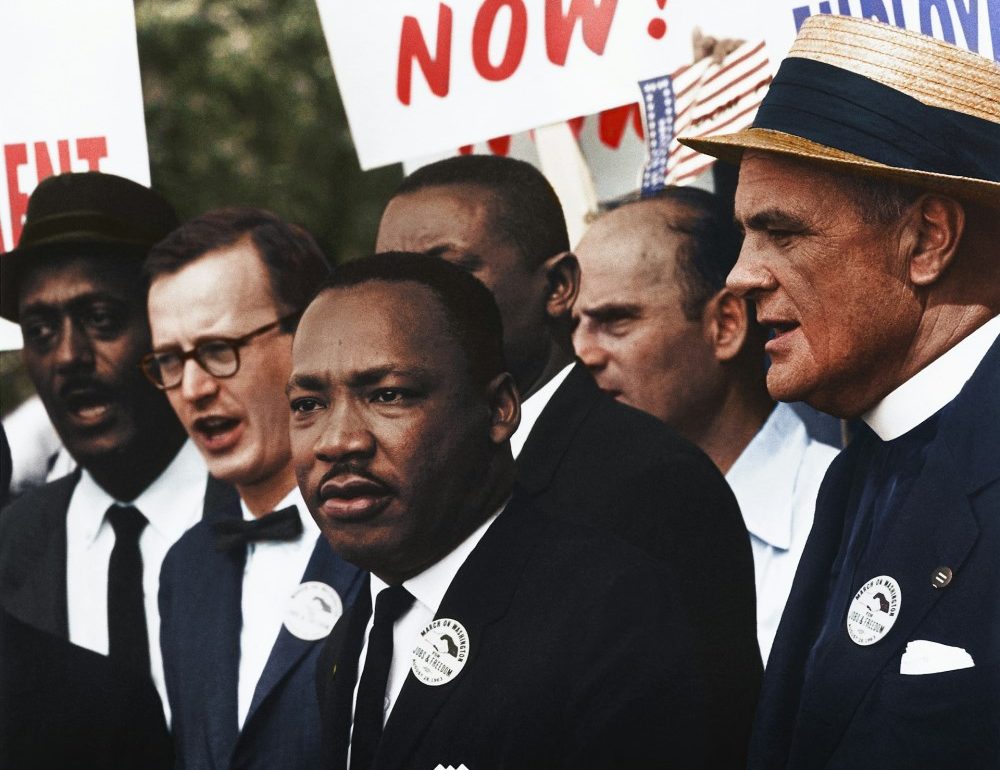
I have come to appreciate the staid, fact-obsessed biographer. The one who would put you to sleep—were their subject not so interesting. You can usually trust such a biographer. The truth may be boring in its perpetual minutial onslaught, but never in its larger patterns that emerge over time.
I recently attempted to read a biography that purported to be feminist, but imbued more feminism on its subject than perhaps the subject really had, living in a different historical time than ours. Or anyway, the book was written in such flowery and speculative language that I was uncertain whose story I was reading: the subject’s real one, or the biographer’s ardent fantasy of what might have happened, were the past more like the present. I sent that book back to the library with gusto.
Then I attempted the biography King: A Life, by Jonathan Eig. It’s a loooooong one. A Very Fat Book. Full of Very Important Facts. However, King was one of the best books I’ve read this year. I felt that I could trust Eig to deliver me the facts with as little subjectivity as possible. Since the subject could not have been more towering or fascinating, that was just the writing style I needed.
“On this night, King found a new voice. He discovered or sensed that his purpose was not to instruct or educate; his purpose was to prophesize. With a booming voice and strident words, he marked the path for himself and for a movement. He reminded the people that their advantage was in their moral superiority.”
The people did not need to be instructed or educated because they already knew the Jim Crow laws were wrong. What the people needed was a leader to inspire them to act. They needed a prophesy that their actions, extremely dangerous no matter how nonviolent, would not be in vain.
Dr. Martin Luther King Jr. stepped into a void to provide the needed leadership, inspiration, and prophesy. He ignited a movement that indeed changed America forever. But he did so at great personal risk. He was willing to die for the cause. He thought he would die for the cause. He died for the cause.
It is no small thing to walk this path. How does a mere human being move from the powerlessness of childhood to heroism in adulthood? Eig guides us with a steady pen, as King identifies his moral convictions, learns life lessons through travel and education, develops his talent as a public speaker and minister, makes deliberate life choices to put him in circumstances where he can make a difference, steps into a leadership void at the right moment, experiences severe pushback, has a moment of truth with his higher power, and lets this truth propel him forward from then on.
It’s almost, though not quite, a miracle that there have been such people in the world. The courage of MLK Jr. astounds me. Reading King was an exercise in astoundment. And yet I also believe that all of us have the ability to summon a similar courage within us, if only we take the time to reflect, over and over, what’s worth being courageous about.
What in this world is worth the arduous summoning of your courage?




Dear Liza, I thank you so much for your insights. You have given me a new way to understand the nature of the heroic in your re-presentation of the life of the Rev. Dr. Martin Luther King, Jr. I find I am becoming more and more focused on how to move toward peace really. Are we going to hate and kill each other forever? Or are we going to find another way to live under this sun. I’m so weary of reading of murder and violence. Thank you for sharing Eig’s insights for this different peace way.
Hi Carolivia! Thank you for your words. I think MLK Jr was one of the most amazing people who ever lived. We all have so much to learn from him. Take care!